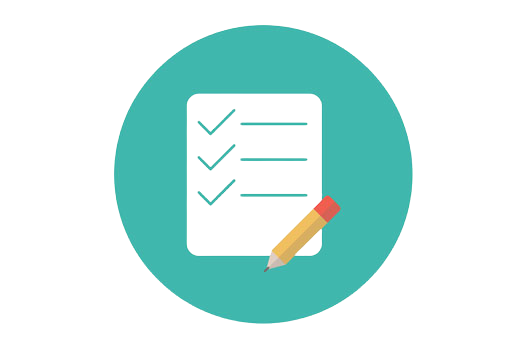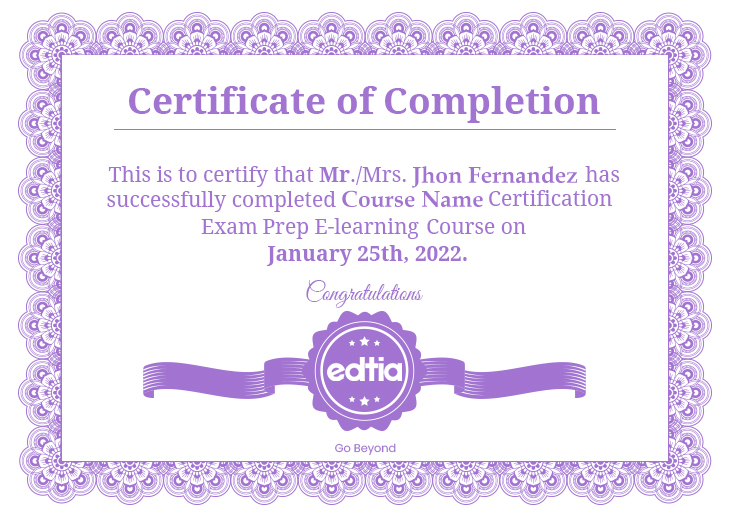Your Shopping Cart

This course is created to help you develop solutions for Microsoft Azure. In this course, you will learn Azure development using IaaS, PaaS solutions, and related Storage, Security, and Integration Services.
Microsoft Azure Developer Associate AZ-204 certification course is made to help you qualify for Developing Solutions for Microsoft Azure, required to achieve the Azure Developer Badge (Associate-level). During this Certification training, you will show a thorough knowledge of Azure development using IaaS, PaaS solutions, and related Storage, Security, and Integration Services.
Azure developers Associate, design, and build cloud solutions such as applications and services. They develop, from solution design to development and deployment, testing, and maintenance. They combine with cloud solution architects, cloud DBAs, cloud administrators, and clients to implement the solution. It is role-based and is designed to expand Azure development skills to meet future business needs.
This Azure certification course is for those who want to enter the cloud security industry. Fresh graduates who are intent on diving into the job market Professionals with less than two years of experience working in technical or non-technical sectors want to shift to cloud security. Individuals who have expertise in designing, building, testing, and maintaining cloud applications and services on Microsoft Azure Cloud Evangelists
Microsoft Azure is the most entrusted cloud service for the corporation and hybrid Infrastructure. This study helps you get a profound understanding of developing solutions using Azure Infrastructure and Platform Compute services. The study also focuses on all the necessary considerations while building a highly scalable and available solution on the cloud.
As a prospect for this course, you should have one or two years of professional development experience, including experience with Azure. Other conditions include the ability to program in a language supported by Azure. Command in Azure SDKs, Azure PowerShell, Azure CLI, data storage options, data connections, and APIs, along with a background in app authentication and authorization, compute and container deployment, debugging, performance tuning, and monitoring.
You will be learning Azure application design, Azure CLI, Powershell , Bindings and triggers, Azure Container Service cluster, Azure confidential computing, SSLTLS communications, Configure authentication for APIs, Develop application message model.
Career opportunities after this course are Azure Cloud Architect, Cloud Administrator, Cloud Developer, Cloud Sales and Purchase Manager, Cloud DevOps Engineer, Azure Big Data Specialist, Azure Networking Specialist, Key Account Manager Cloud.
Your system should have a memory Minimum of 8 GB RAM, Processor – Intel Core i3 CPU @2.00 GHz or later, Storage – 250 GB HDD/SDD or later, Windows 7 or later, Ubuntu 14 or later operating system, Visual Studio 2017 community edition (Include Azure packages), Windows PowerShell 4.0 or later (Install Azure Module), Microsoft Azure SDK for .NET v2.9 or later.
The IT industry validates aptitudes and capabilities learned via certifications with higher salaries. Also, individual benefits are apparent—certified IT professionals earn more than their non-certified peers. Cloud computing certifications are associated with four of the top five highest IT salaries globally. Some added benefits of certified personnel, according to IT decision-makers, include: Improved productivity Fewer skills gaps Faster project completion Quicker deployment of products and services Provides an edge over competitors
You will be introduced to Microsoft Azure and its Infrastructure as a Service(IaaS) Compute Solutions. Discover how to plan for VM deployment and create VMs using Azure Portal, PowerShell, and C# code.
Discover how to create and use ARM templates for repeatable deployments and encrypt Azure VM disks. Furthermore, discover to use Azure Batch, which develops and manages a pool of compute nodes (VMs), lodges the applications you want to run, and schedules jobs to run on the nodes.
This module teaches you to build and run modern, portable, Microservices-based applications that benefit from Kubernetes orchestration and control the availability of those application components.
In this, you will know how to use Azure App Service, Web Apps for hosting web applications, REST APIs, and mobile back ends. How to add more power to the application by implementing security, load balancing, autoscaling, and automated management.
You will learn how to create and document an Azure App Service API and implement Azure Functions, a solution for efficiently running small pieces of code, or "functions," in the cloud.
Operate Azure Table storage service that stores structured NoSQL data in the cloud, providing a key store with a schema-less design. Also, know how to use Azure Cosmos DB storage to manage containers and items, handle documents using code, and implement scaling.
This module teaches you about Azure SQL Database Azure Blob storage, Microsoft's object storage solution for the cloud.
This section teaches securing data at rest and during transmission. You will also discover how to leverage Azure Cache for Redis and Azure CDNs to deliver assets to users quickly.
You will cover adding code to your app to send the data to Azure Monitor, how applications scale and how to handle troubleshooting.
This module delivers an overview of Logic Apps and API Management. This module will also teach how to integrate Azure Search (Search-as-a-Service).
Create event-based solutions in Azure by integrating Azure Event Grid, Event Hubs, and Notification Hubs in your applications. Also, understand Microsoft Azure Service Bus, a fully managed enterprise integration message broker.
Edtia Support Team is for a lifetime and will be available 24/7 to help with your queries during and after the completion of the course.
Microsoft Azure is one of the leading technologies in the IT Industry. After completing this course, you can enhance your knowledge in the industry and land a high-paying job in the field.
Coding is not required. You will be able to use Microsoft Azure without any coding development, and you will have all of the tools provided by Microsoft Azure.
The average salary of an Azure Developer is approx US$130,140/year. For a beginner Azure developer, the pay is approx. US$97,000.
To better understand the course, one must learn as per the curriculum.
The roles and responsibilities of an Azure DevOps Engineer include designing and implementing strategies for collaboration, code, Infrastructure, source control, security, compliance, continuous integration, testing, delivery, monitoring, and feedback.
Yes, it is perfect for freshers. A cloud computing professional will not find any shortage of employment or work in any sector or industry, and there is a significant shortage of cloud computing professionals.


Every certification training session is followed by a quiz to assess your course learning.

The Mock Tests Are Arranged To Help You Prepare For The Certification Examination.

A lifetime access to LMS is provided where presentations, quizzes, installation guides & class recordings are available.

A 24x7 online support team is available to resolve all your technical queries, through a ticket-based tracking system.

For our learners, we have a community forum that further facilitates learning through peer interaction and knowledge sharing.

Successfully complete your final course project and Edtia will provide you with a completion certification.
You will receive Edtia Microsoft Azure Developer Associate Training (AZ-204) Certification on completing live online instructor-led classes. After completing the course module, you will receive the certificate.
A Microsoft Azure Developer Associate Training (AZ-204)certificate is a certification that verifies that the holder has the knowledge and skills required to work with Azure technology.
By enrolling in the Microsoft Azure Developer Associate Training (AZ-204)Certificate course and completing the course module, you can get Edtia Azure training certification.
A Microsoft Azure certification validates your cloud skills and shows your expertise for a given role. It can help you improve your earning potential and stay ahead of your coequals. It is expected that around 60%-80% of all workloads will move to the cloud by 2025, meaning there will be high demand for professionals who can develop cloud applications and manage cloud infrastructures.
